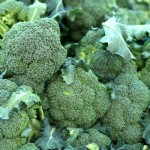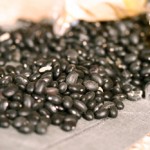Most people associate vitamin K with blood clotting, since the vitamin plays an essential role in several reactions that control blood clotting. New research suggests a role for vitamin K in bone health.
Resources & Glossary
In this section, you'll find posts with resources on eating, cooking and living healthier - including a glossary for all vitamins, minerals and nutrients.
Calcium
Calcium is best known as a key component of bones, and in fact 99% of the calcium in our bodies is in bones in teeth. The other 1% in blood and cells is essential for many metabolic reactions.
Vitamin B2 (Riboflavin)
Vitamin B2 plays an essential role in the metabolic system that produces energy from carbohydrates and fats. It is also a co-factor for reactions that convert other vitamins to active forms. Certain enzymes that act as antioxidants depend on vitamin B2, and this vitamin is critical to iron utilization in the body.
Manganese
Manganese is a mineral nutrient, required in small amounts, but extremely important to enzyme activity. Mitochondria, the cell’s energy-producing engines, are highly susceptible to oxygen damage.
Potassium
Potassium is the key electrolyte inside cells, and works with sodium to keep body fluids in balance. In addition to its role as an electrolyte, potassium is a component of bones, and is involved with muscle contraction, protein synthesis, acid-base balance and the electrical signals in the heart.
Vitamin B1 (Thiamin)
itamin B1, or thiamin, is an essential co-factor for enzyme reactions that control energy and glucose metabolism. It also plays a role in the synthesis of genetic building blocks like nucleic acids, DNA and RNA.
Vitamin E
Vitamin E acts as an antioxidant in the human body, protecting from damage caused by free radicals. Cell membranes are made primarily from lipids, which are highly susceptible to oxidative damage.
Folate
Folate plays an essential role in enzyme reactions that control DNA metabolism and amino acid metabolism. The chemical reactions that control cell division are particularly dependent on folate, especially for cells that divide rapidly.










 Are you ready to look better, feel more energized, and get back that youthful feeling you remember having as a kid? I can help you on a journey that will change the way you eat — for good. My
Are you ready to look better, feel more energized, and get back that youthful feeling you remember having as a kid? I can help you on a journey that will change the way you eat — for good. My 














 As a healthy cooking expert, health coach and TV host,
As a healthy cooking expert, health coach and TV host, 


